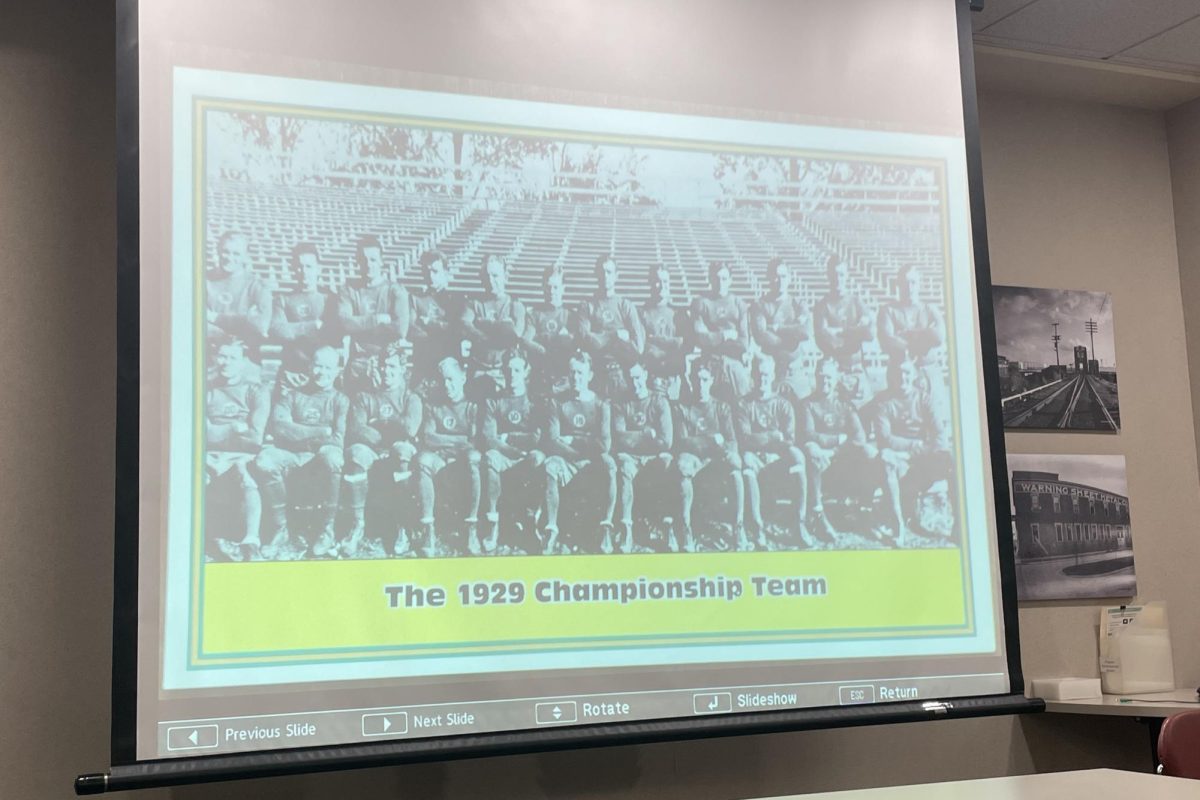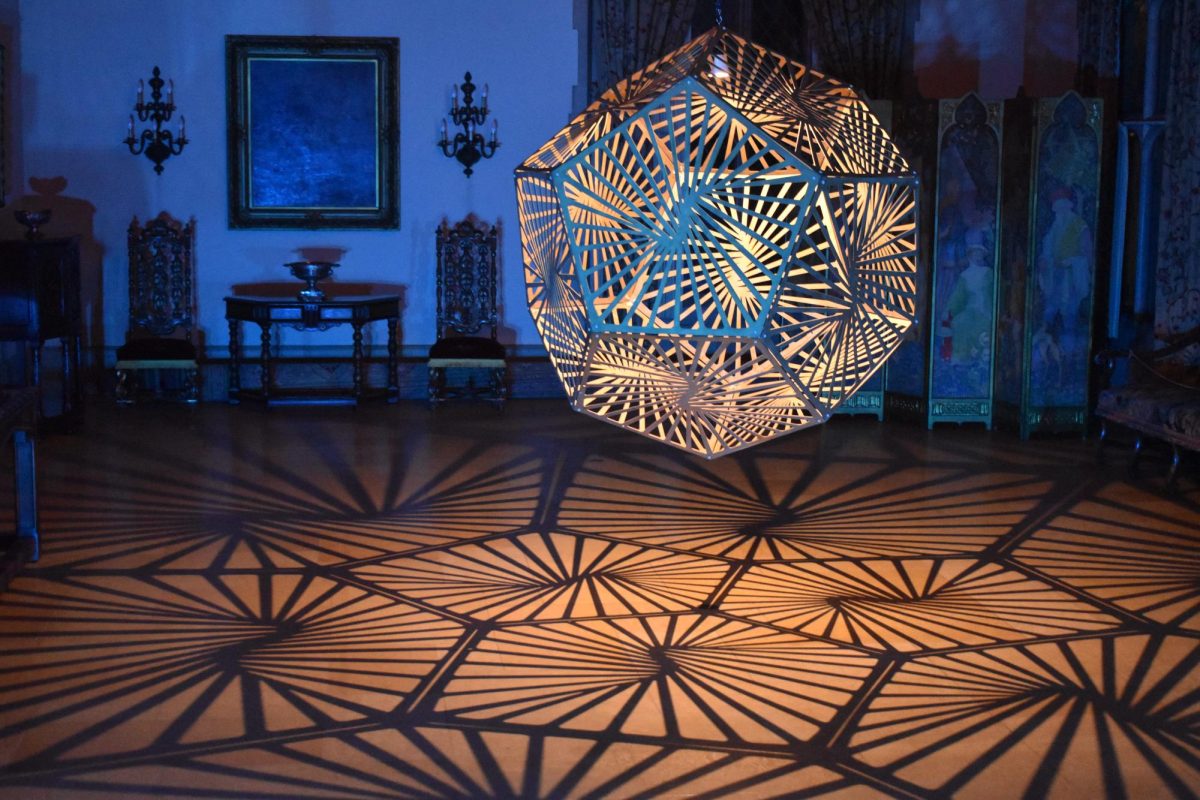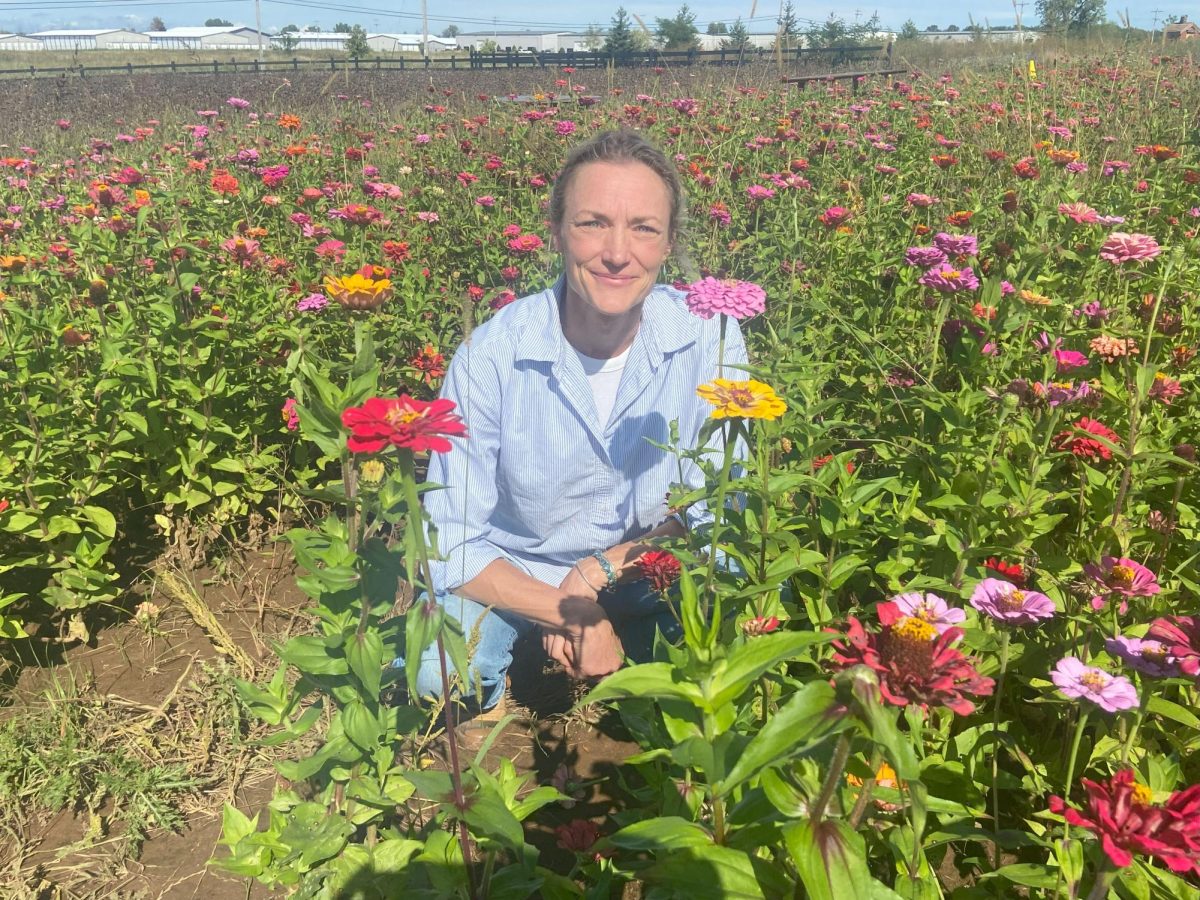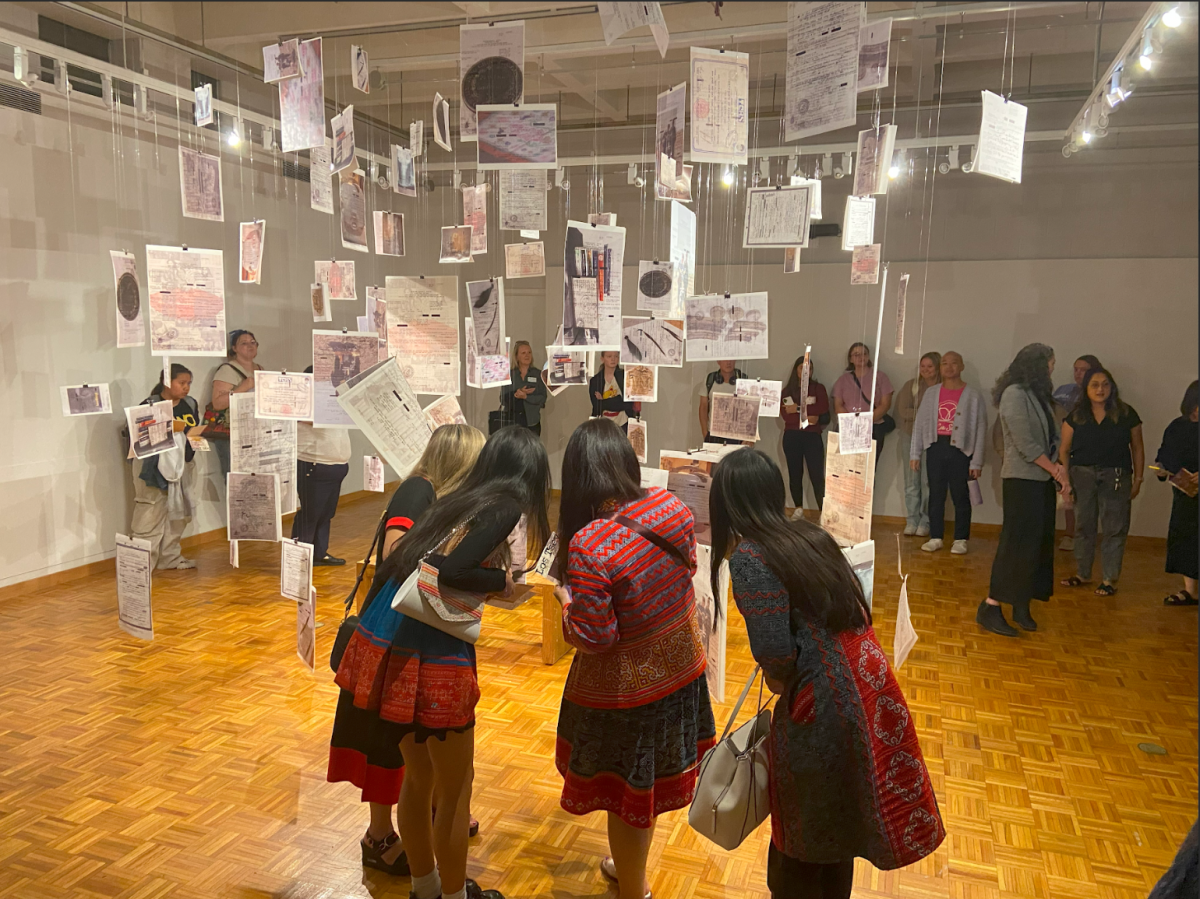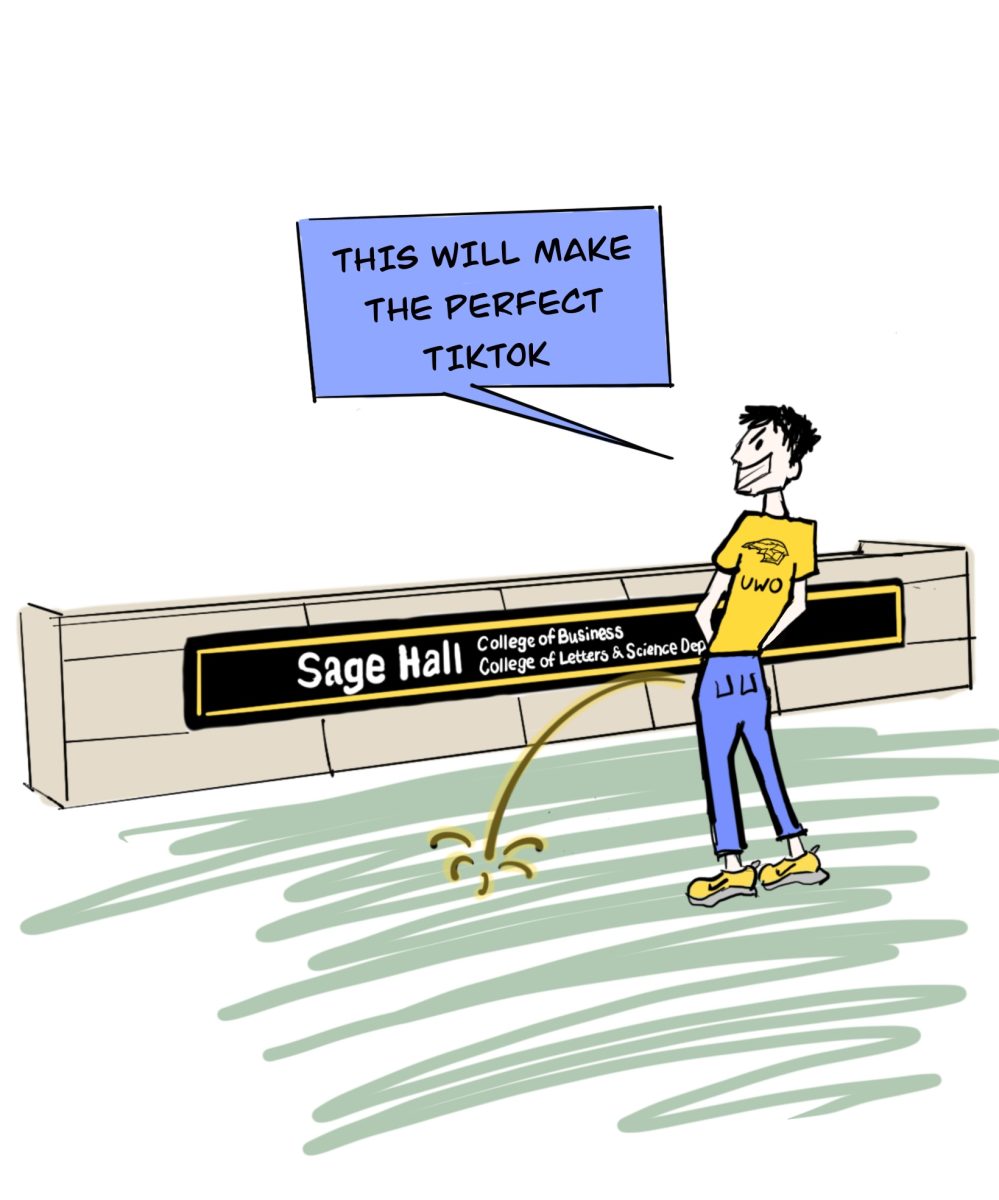Since President Donald Trump’s election in mid-January, he has been on a crusade to end Diversity, Equity and Inclusion (DEI) initiatives under the pretense of protecting civil rights, but many minorities at UW Oshkosh do not feel protected.
On Feb. 18, Trump targeted the education system and gave public universities a two-week deadline to end all DEI initiatives, or risk losing federal funding.
The UW System complied with an 11-6 vote from the Wisconsin Board of Regents in Dec. 2024
This decision has affected UWO students and organizations in many ways, a major one being the sale of the UWO Women’s Center building.
“Having to lose our own space has been detrimental,” said Abby Laundrie, co-president of Women’s Advocacy Council (WAC). “Having our own space to build that community, be able to freely express ourselves without concern and without having to hide ourselves has been probably the biggest impact.”
The Women’s Center, and other campus organizations that fall under DEI, have been consolidated into what is now the Student Center for Success and Belonging (SCSB).
Selling the Women’s Center building has had an impact to current and past students alike.
The previous LGBTQ+ resource center director of 13 years, Liz Cannon, said, “When the announcement went out that they’re selling the building and the centers are gone, I did get previous students reaching out to me, just sort of like, horrified.”
After teaching English and Women and Gender studies for six years, Cannon was asked in approximately 2003 to direct the Women’s Center by the UWO Gender Equity Council after a survey conducted by the UW System about campus resources for women recommended starting a women’s center.
Before that, Cannon taught Women and Gender Studies and English at UWO for 19 years.
“I think all of us in education are worried about the impact this is going to have on the quality of education that is going to be available to students now,” Cannon said.
Once located on the southeast corner of campus, UWO sold the Women’s Center in late January, citing budget issues and political pressure from Assembly Speaker Robin Vos (R-Rochester) to get rid of DEI initiatives and resources.
“Colleges kind of bowing to these anti-DEI demands even before they went into place [and] cutting funding just kind of shows students that they aren’t necessarily the university’s top priority,” said Adrian Hanrahan, a UWO alumnus who interned and worked at the LGBTQ+ Resource Center for two years.
Since selling the space, these organizations have been relocated to The Hub, a new common area located at Reeve 104.
“[The Women’s Center] was a place that you knew if you went there, you belonged,” Cannon said. “That physical space is important, and especially for LGBTQ folk, you’re not going to get that at The Hub.”
While the clubs may still exist, Cannon says that a women’s center does not.
“It’s The Hub, it’s expanded, [but] it’s not a women’s center,” Cannon said. “Eliza’s doing a wonderful job of keeping some of the programming going, so they are doing amazing. But there is no women’s center, there is no LGBTQ resource center.”
Losing the space has also resulted in a lack of physical space as detailed by Laundrie.
“A lot of clubs were put there, so it’s all the clubs there, plus the women’s center, [that] are all being put into one smaller space in the union,” she said. “While sharing a space is not bad, It is a smaller space where there is only one closed-off conference room.”
Beyond spacing issues, meeting in a general area like The Hub can also cause confusion.
“A lot of times what happens with The Hub is people are confused because they have sometimes like three events going on at the same time in that space and no one knows really where we’re supposed to meet because it’s just one big kind of general area,” Laundrie said.
Not having a physical space also presents a mental and emotional impact.
“Especially for women and people who are a part of the LGBTQ community, it’s nice to have your own space where you know you can freely have conversations, and you can be yourself,” Laundrie said.
As an alumnus, executive board member for Helping Others Perceive Equality (HOPE) and intern at the LGBTQ+ center, Burgundy Johnson saw and experienced the effects of the center firsthand.
“A lot of students, myself included, relied on the Women’s Center and the LGBTQ+ Resource Center as a place to make friends, to learn more about themselves, about the types of things (particularly sex and gender) that the adults in their lives had failed to teach them,” Johnson said.
Johnson said the center played a vital role in her life.
“They became the main places to hang out for me – and in a culture like Wisconsin’s, where ‘hanging out’ as adults usually means ‘let’s all go to the bar and drink!,’ having a hangout space that was not a bar was a huge deal,” they said.
Hanrahan also detailed the mental impact these decisions have had on students, saying, “Even in the case where students are going to be able to still access those physical resources, they’re gonna have that emotional damage done where they just don’t feel as connected to, loyal to and safe at their university,” she said. “I think it would kind of benefit the university to think about it from that standpoint as well and think about how that might impact enrollment, degree completion and stuff like that. Not treating their students properly in this way is going to come back to bite them.”
Laundrie said, “these short-term fixes look good in [Leavitt’s] eyes because of money, but it does not feel like he is truly listening to the concerns people have been addressing to him,” she said. “A lot of the times he will say, ‘students will not be affected by this’ but students have been greatly affected by some of these big changes he’s made, and most students I know are not happy about it.”
Beyond losing community and a safe space, removing DEI initiatives also means the loss of support and resources for students.
“Marginalized groups are the most likely to need support through college in every way imaginable, from financial aid to moral support to academic help and more,” Johnson said. “By removing DEI programs and initiatives, our educational institutions are turning their back on marginalized students and deeming them unworthy of a little extra help, undeserving of a chance to even the playing field in a society meticulously designed to keep the marginalized suppressed.”
These points are important to consider in lieu of the university’s budget deficit in recent years, which Chancellor Leavitt has said involves declining retention.
According to Hanover Research, “social connectedness and student involvement are important elements influencing student retention.”
At one point, the university understood this idea according to Black Student Union (BSU) President Jade Hibbler.
“I know when I was a freshman and coming into UWO, they pushed so much to have students join clubs and making sure that we find a place on campus where we feel like we can be ourselves,” Hibbler said. “I just feel like there’s just no way that they can take that away.”
Hanover Research also said, “despite temptations to cut ‘soft activities’ during budgetary cutbacks, it is important that students have a variety of opportunities to engage with peers through campus activities and organizations.”
“[DEI initiatives are] being taken away because there isn’t funding for them, but we’re not going to make up that funding through tuition dollars if no one wants to come to the university because it doesn’t offer the programs they want,” Hanrahan said.
Not having their own space and having a shared one also means no personalization.
“It’s been more word of mouth, nothing super set in stone but we’re not really allowed to decorate the space in a certain way,” Laundrie said.
Some DEI-centered organizations have also heard that they may need to cancel certain events.
“There’s been talks about clubs already, not just ours, but certain events getting cancelled because of not being with the new initiatives that have set into the school,” Laundrie said.
One of the clubs facing this potential threat is WAC.
“WAC has a plan in April to throw an event called ‘sex toy bingo’, we’ve heard there was a chance we won’t be able to do it because of the DEI stuff,” Laundrie said.
While the government has been pushing out DEI, the students have been pushing back as well.
“Even though there’s a lot of pushback against DEI, students are also fighting against it and working to try and make this a better community,” said Laundrie.
Some things WAC has been doing to push back include planning more political events, working with Planned Parenthood and working on building a community without a space and providing support for those affected.
“I think no matter what happens, I believe that as students on campus, we have more power than we think we do,” said Hibbler. “I just think that there’s no way that they’ll be able to take away safe spaces for students on campus and take away clubs that really make students feel like they have a purpose and like they have a place to be on campus.”
While the school can, indeed, take away these safe spaces, they cannot take away the communities already built, and the impacts these centers have had on students, faculty and alumni alike.
“It’s very very hard to see the work of 13 years basically gone,” Cannon said.
“The joy is I know that the whole purpose was to connect with students and to help them as they move through, and that that can never go away. The impact it had on students can never go away,” ey said.
“I just worry about the current students and what’s going to happen.”
Also a retired professor who focused on DEI-centered curriculums, Cannon said, “I think the information we were teaching was so important because we were teaching people to think and to look at things from a whole variety of perspectives,” ey said. “We never were trying to teach people how to think, but just to think. And I think that that is unbelievably important.”



